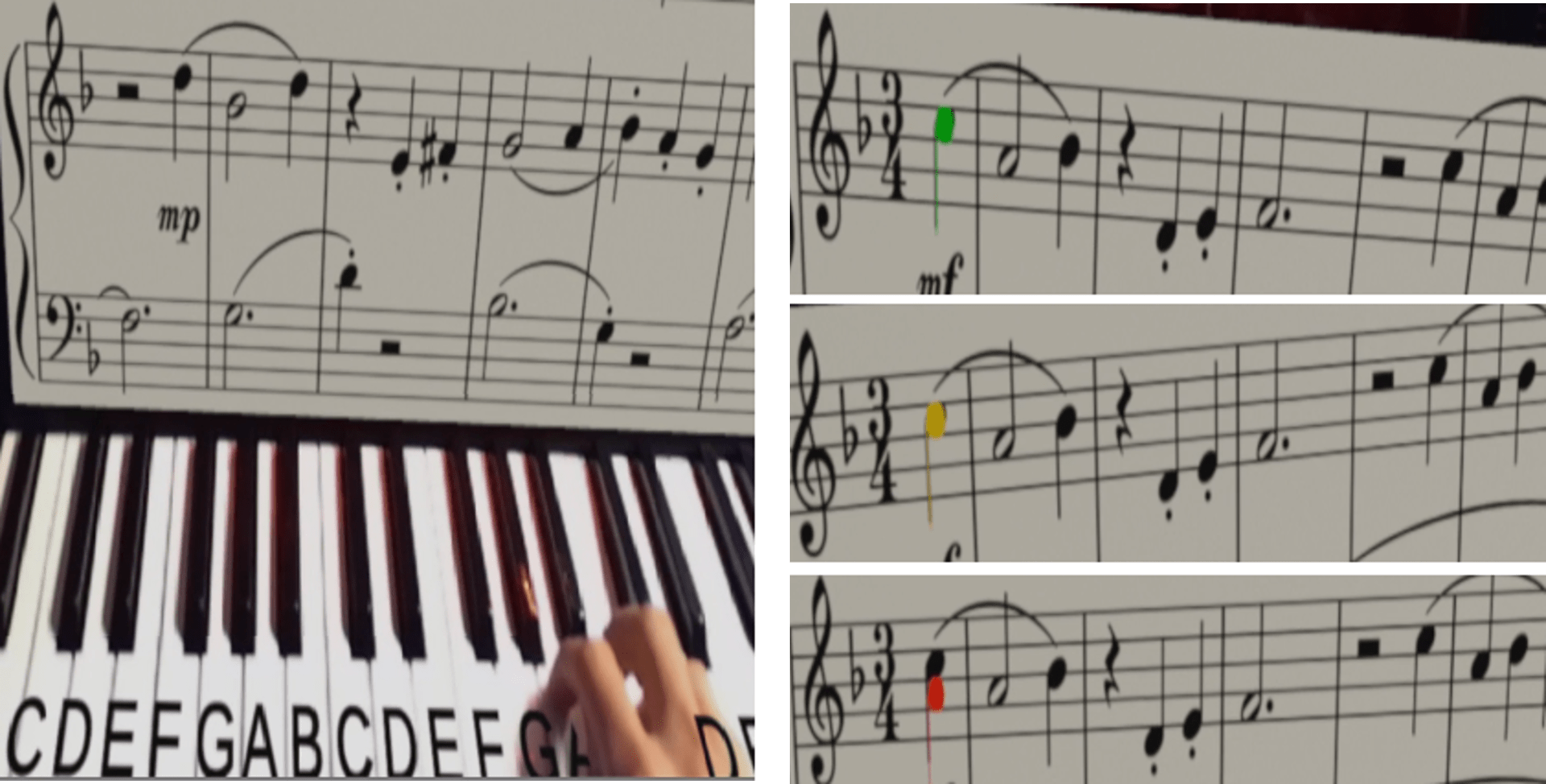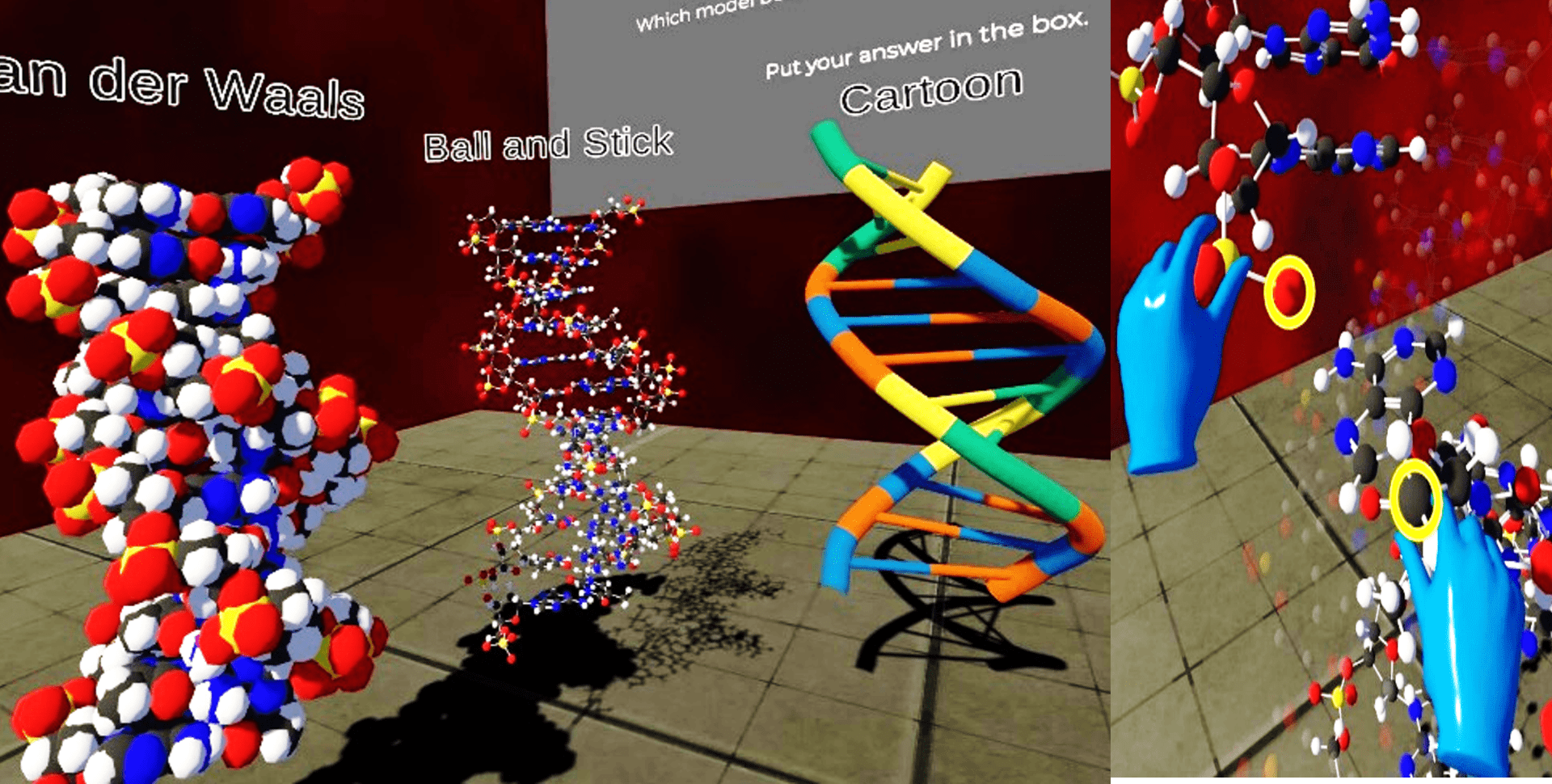
EXTended REality Multi-modal Education and Training (EXTREME)
This project investigates the use of extended reality (XR) technologies and multi-modal learning for education, including innovative teaching tools, evaluating the effectiveness of AR/VR technologies, collaborative teaching and learning in AR/VR, embodied learning, and developing platforms and frameworks for using extended reality in education. The project combines knowledge from a wide variety of research fields including computer graphics, education, human computer interaction, computer vision, arts and design, and subject specific expertise.

piARno: An Augmented Reality Piano Tutor
Music is an important way for humans to express themselves, unite, relate, and gain enjoyment. While many people desire for themselves, or their loved ones, to achieve some form of musical prowess, the discipline remains encumbered by low motivation and high dropout rates. This is despite long established trends between exposure to learning playing an instrument and enhanced cognitive development. Previous research suggests that one factor associated with motivation loss might be the lack of perceived progress during the early stages of music instruction.
In this research, we develop a novel Augmented Reality piano tutor with the primary goal of increasing the efectiveness of self-practice for beginners. Our solution is based on the principle of constant feedback and reducing the level of indirection between instrument, instructions, and feedback, and enables users to learn to read and understand piano sheet music quickly without requiring a private instructor, while maintaining compatibility with the traditional learning process. An evaluation of our solution with a user study containing 22 participants showed that our tool signifcantly improved motivation and the ability to read piano sheet music.

Hands-on DNA: exploring the impact of virtual reality on teaching dna structure and function
Hands-on DNA is a virtual reality (VR) learning experience developed for Sebastian’s MSc in Bioinformatics. The purpose of the project was to explore how the unique benefits of VR could be applied to issues encountered in tertiary molecular biology education. Molecular biologists study phenomena at sub-microscopic scales that cannot be experienced directly by human senses. VR has strong advantages in depictions of scale, and allows students to interact directly with molecules that they would otherwise have to learn about through 2D animations and images.